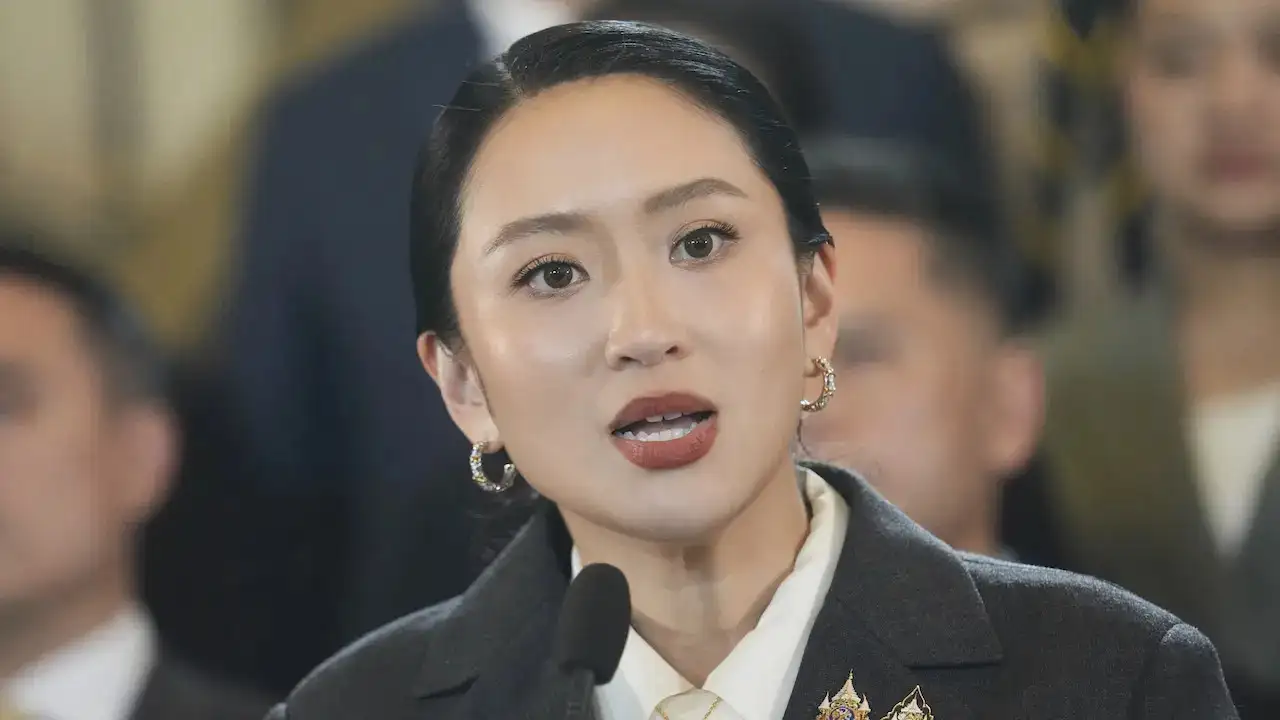Thai Prime Minister Ousted by Court Following Controversial Phone Call with Cambodian Leader

Thailand’s political landscape has been shaken following the Constitutional Court’s decision to remove Prime Minister Paetongtarn Shinawatra from office. The court ruled that she violated ethical standards during a leaked phone call in which she criticized the Thai army and referred to Cambodia’s former leader, Hun Sen, as “uncle.” This ruling not only marks a significant moment for the Shinawatra political dynasty but also raises questions about the future of governance in Thailand as the country grapples with ongoing tensions at its borders.
Constitutional Court’s Ruling
On Friday, the Constitutional Court’s nine judges voted six to three against Paetongtarn, determining that her actions breached the ethical standards expected of her position. The court highlighted that her relationship with Hun Sen appeared to align more with Cambodia’s interests than those of Thailand. Despite Paetongtarn’s assertion that the call was intended to foster peace, the court expressed that her actions led the public to question whether her intentions were genuinely in Thailand’s best interest. The ruling marks a significant moment in Thai politics, as Paetongtarn becomes the fifth prime minister to be ousted by the court since 2008.
Background of the Controversy
The controversy surrounding Paetongtarn’s dismissal stems from a leaked phone call with Hun Sen, which occurred amid escalating tensions along the Thai-Cambodian border. The call, which was made public by Hun Sen, included remarks that critics interpreted as undermining the Thai military. This incident occurred just weeks before a violent conflict erupted at the border, resulting in numerous casualties and displacing hundreds of thousands of people. Paetongtarn, who joined the Pheu Thai party in 2021, had previously risen to power after her predecessor was dismissed for appointing a controversial ally to his Cabinet.
Political Implications and Succession
With Paetongtarn’s removal, the Pheu Thai party must now select a new leader through parliamentary vote. The party holds a slim majority, but its coalition with the conservative Bhumjaithai party has been strained following the controversy. The parliament is not required to dissolve to choose a new prime minister, but a majority of members must support one of the five registered candidates. Chaikasem Nitisiri, a former justice minister, is currently the Pheu Thai candidate to succeed Paetongtarn, while Anutin Charnvirakul from Bhumjaithai is also considered a front-runner.
The Future of the Shinawatra Dynasty
Paetongtarn’s ousting represents a significant setback for the influential Shinawatra family, which has been a dominant force in Thai politics for years. She is the third member of her family to have their premiership cut short, following her father Thaksin, who was ousted in a military coup in 2006, and her aunt Yingluck, who was removed by the Constitutional Court in 2014. Although Thaksin has retired from formal politics, his influence remains substantial. However, the recent developments raise uncertainty about the future impact of the Shinawatra name in Thailand’s political arena.
Observer Voice is the one stop site for National, International news, Sports, Editor’s Choice, Art/culture contents, Quotes and much more. We also cover historical contents. Historical contents includes World History, Indian History, and what happened today. The website also covers Entertainment across the India and World.
Follow Us on Twitter, Instagram, Facebook, & LinkedIn

